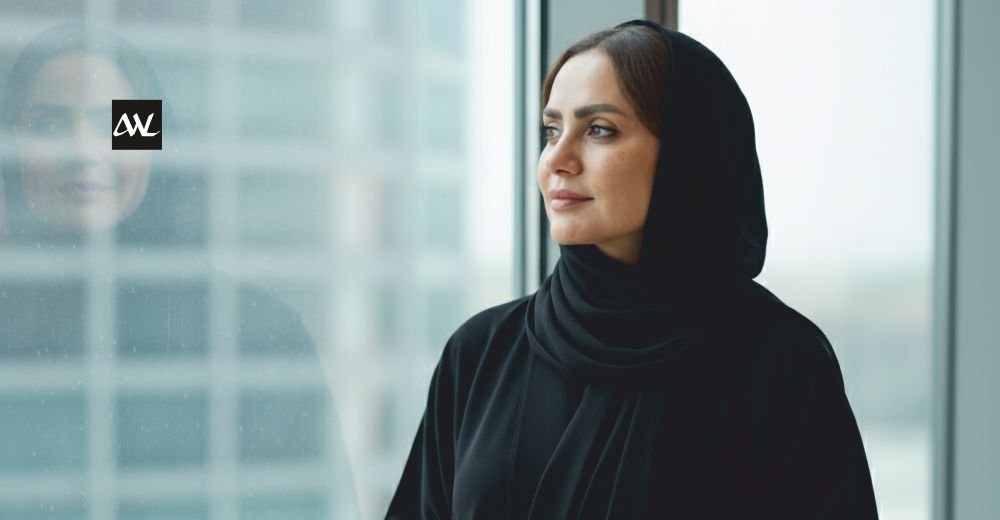In today’s evolving marketing and communications landscape, leaders must convert traditional roles into growth-engineering strategies. Strategic thinking, cultural competence, and motivating teams while being fully invested in stakeholders are now the norms in order to survive. The business has moved on from advertising and PR to encompass digital platforms capabilities, data savvy, and narrative that brings creativity and metrics together. In Saudi Arabia, Vision 2030 enhanced the worth of strategic communications, under which local values are to be merged with the best global practices. In the rapidly changing setting, Amira Afandi demonstrates how communications can lead to organizational and national change.
A Strategic Vision Takes Shape
Amira Afandi has established herself as a transformational leader in the marketing and communications sector. She has built an impressive career spanning more than two decades across diverse industries. Her journey encompasses corporate environments, hospitality, and aviation, where she has consistently demonstrated the ability to align teams, build stakeholder trust, and develop narratives that achieve both local relevance and international standards.
Throughout her career,Amira Afandi has championed the elevation of marketing communications from traditional service roles to strategic partnerships that directly influence business outcomes. Her approach centers on transforming team mindsets, moving organizations away from viewing communications departments as mere campaign executors toward recognizing them as integral drivers of growth and transformation.
The foundation of Afandi’s success lies in her systematic approach to organizational change. She begins each transformation by aligning team objectives with broader organizational vision, ensuring that every team member understands how their contributions impact customer satisfaction, stakeholder trust, and commercial growth. This alignment creates a sense of ownership rather than mere obligation among team members.
Building Strategic Capabilities
Afandi’s methodology extends beyond alignment to encompass comprehensive capability building. She focuses on ensuring teams develop fluency in data analytics, digital platforms, and creative problem solving. This multi-faceted approach prepares communications professionals to thrive in an increasingly complex business environment where success depends on technical proficiency combined with creative excellence.
Cultural transformation represents the final element of her strategic framework. Amira Afandi empowers team members to innovate, voice their perspectives, and assume leadership roles within their areas of expertise. This empowerment creates an environment where communication becomes a collaborative voice at decision-making tables rather than a behind-the-scenes service provider.
Her experience across different sectors has provided unique insights into industry-specific challenges and opportunities. Corporate environments taught her the critical importance of precision and reputation management. The hospitality sector revealed how emotions and experiences form the foundation of customer loyalty. Aviation demonstrated the complexity of communicating simultaneously with global travelers, government entities, employees, and business partners.
Navigating Resistance and Building Consensus
When faced with team resistance, misalignment, or lack of direction,Amira Afandi employs a combination of empathy and evidence-based leadership. She recognizes that resistance typically stems from fear of change and addresses these concerns through active listening and meaningful connection. Her approach involves linking proposed changes to tangible benefits for employees, customers, and the organization as a whole.
Accountability forms a crucial component of her leadership style. Teams operate within clear frameworks that define responsibilities and establish measurable outcomes. This structure helps team members recognize that change represents opportunity rather than threat, facilitating their transition from resistance to ownership of transformation initiatives.
Amira Afandi identifies vision, agility, and authenticity as essential leadership qualities for guiding high-performing communications teams in competitive environments. Vision provides direction and enables teams to understand broader organizational objectives. Agility proves crucial in fast-paced environments where narratives and market conditions can shift rapidly. Authenticity builds trust both within teams and with external stakeholders, creating the foundation for sustainable relationships.
Cross-Industry Excellence
The diversity of Afandi’s professional experience has fundamentally shaped her approach to developing communication strategies. Each sector provided unique learning opportunities that contributed to her comprehensive understanding of effective communications across different contexts. This cross-industry exposure enables her to adapt strategies to specific industry requirements while maintaining consistent fundamental principles of clarity, consistency, and connection.
Her ability to transfer best practices between sectors represents one of the significant advantages of her extensive career span. Successful approaches from corporate environments can be creatively adapted for hospitality applications, while aviation insights can enhance corporate communication strategies. This cross-pollination of ideas and methodologies creates innovative solutions that might not emerge from single-sector experience.
Long-term vision plays a central role in Afandi’s approach to branding and communications, particularly for organizations experiencing rapid change. She views long-term vision as an anchor that prevents reactive decision-making during turbulent periods. Every campaign, whether seasonal, tactical, or responsive to immediate challenges, contributes to a larger narrative that builds audience trust over time.
For Afandi, branding transcends visual elements like logos or taglines. She conceptualizes branding as the development of consistent storytelling that builds audience relationships even as external environments shift and evolve. This perspective ensures that short-term communications decisions support long-term brand development objectives.
Aligning with National Vision
The balance between promoting individual brand identity and aligning with Saudi Arabia’s Vision 2030 goals represents a unique challenge that Afandi navigates through strategic focus on content and character. She ensures that organizational stories reflect transformation, innovation, and global openness while maintaining tone and delivery rooted in Saudi values of hospitality, resilience, and ambition.
This dual focus enables brands to serve their individual purposes while contributing to the larger national narrative. Rather than viewing brand identity and national goals as competing priorities, Afandi creates synergies that strengthen both organizational positioning and national transformation objectives.
Her philosophy regarding global best practices emphasizes learning from sector leaders worldwide, not to copy their approaches but to build upon established industry standards rather than recreating foundational elements. She draws inspiration from international examples while ensuring that implementation reflects local cultural contexts and values.
The integration of global benchmarks with local authenticity creates the foundation for communications that achieve both world-class standards and deep cultural resonance. Data-driven personalization techniques prove effective only when combined with storytelling that reflects authentic cultural values and organizational character.
Innovation and Strategic Impact
Afandi’s approach to innovation prioritizes impact over trendiness. She focuses on three core areas: utilizing data and insights for real-time audience understanding and strategy adjustment, embracing digital-first engagement to meet stakeholders in their preferred environments, and building collaborative agility across teams to ensure consistent and responsive communications across all touchpoints.
The most significant innovation in her approach involves transforming organizational perceptions of marketing communications. When organizations recognize communications as strategic partners in growth and transformation rather than support services, the entire function experiences elevation in influence and effectiveness.
Storytelling occupies a central position in Afandi’s brand-building and stakeholder engagement strategies. She recognizes that while facts inform audiences, stories inspire action by transforming information into emotion and emotion into meaningful behaviour. Her storytelling approach focuses on humanizing brands through recognition of employee contributions, celebration of customer experiences, and highlighting of strategic partnerships.
Rather than emphasizing grand campaign narratives, Afandi creates stories that help people feel connected to organizational journeys. She understands that powerful stories create lasting impressions that endure long after specific facts are forgotten.
Measuring True Impact
Afandi’s measurement philosophy extends beyond traditional metrics like media coverage or social media reach. While acknowledging the importance of these surface-level indicators, she focuses on deeper impacts related to perception and behavior change. Strengthened stakeholder relationships that result in cooperative partnerships, improved staff engagement, and higher audience trust are examples of success metrics.
Communications succeed when they build loyalty, pride, and trust among key audiences. These outcomes require longer-term evaluation approaches that assess relationship quality rather than simply quantifying message distribution or immediate response rates.
Talent development represents a core responsibility in Afandi’s leadership philosophy. Her focus is not merely confined to task completion. She also invests time in coaching team members on critical thinking, confidence building, and executive presence development. Her mentorship approach emphasizes experiential learning through challenging assignments that push team members beyond their comfort zones.
Exposure to leadership presentations, initiative ownership, and decision-making responsibilities accelerates leadership development more effectively than theoretical training alone. This hands-on approach prepares team members for progressive career advancement while building organizational capabilities.
Excellence and Empowerment
The distinction between good and great communications teams lies in their approach to transformation rather than mere delivery. Great teams demonstrate proactivity by identifying opportunities and risks before they become obvious to others. They achieve integration by breaking down organizational silos and operating as unified entities. Above all, they demonstrate enthusiasm by upholding the organization’s principles on a daily basis and believing in the brand’s mission.
Exceptional teams transcend campaign execution to fundamentally change how organizations are perceived by their stakeholders. This transformation requires team members who view their roles as brand ambassadors and strategic contributors rather than tactical implementers.
Creativity thrives within structured frameworks according to Afandi’s leadership philosophy. She provides teams with freedom to innovate while maintaining clear strategic boundaries. As long as creative concepts serve brand purpose and support long-term objectives, experimentation is encouraged even when it involves calculated risks and occasional failures.
This balance between creative freedom and strategic discipline enables the emergence of powerful ideas that might not develop in either completely unstructured or overly restrictive environments. The most impactful creative solutions often emerge from the tension between innovative thinking and strategic focus.
Unique Leadership Perspectives
As a woman leader in the dynamic communications field, Afandi brings distinctive perspectives rooted in resilience, empathy, and inclusive thinking. Her leadership style emphasizes relationship building, complexity navigation with composure, and creation of inclusive environments where diverse voices contribute to decision-making processes.
In communications, inclusivity directly contributes to richer storytelling and stronger stakeholder trust. These qualities prove invaluable in leadership contexts where diverse perspectives enhance creative solutions and strategic thinking. Her approach demonstrates that inclusive leadership practices generate measurable business benefits rather than simply fulfilling social objectives.
Her advice to women seeking leadership roles in communications-critical industries emphasizes three key principles: understanding personal worth, developing authentic voice, and taking initiative without waiting for permission. Professional development should encompass both technical expertise and personal resilience. According to Afandi, speaking up during uncomfortable moments builds confidence and establishes credibility.
As women advance in their careers, creating opportunities for others becomes a leadership responsibility. True leadership success is measured not by being the only woman in leadership positions but by ensuring that other capable women follow similar paths.
Modern Communications and Future Vision
Consistency across multiple platforms requires a strong core narrative foundation. Once brand identity and values are established, tone and style can be adapted across platforms without compromising authenticity. Afandi anchors all communications in genuine actions and real stories that reflect organizational values.
Crisis communication requires speed, transparency, and empathy as fundamental elements. Even when complete information is unavailable, stakeholders need visible, proactive leadership that demonstrates genuine concern. The human element often transforms difficult situations into opportunities for building deeper trust relationships.
Looking toward the future, Afandi anticipates that marketing communications will evolve into the nerve center of organizations. Artificial intelligence, data analytics, and immersive technologies will transform the function from messaging to orchestrating comprehensive experiences across digital and physical touchpoints. Future success will belong to professionals who combine analytical precision with human empathy.
Afandi envisions leaving a legacy centered on transformation and empowerment. Transformation involves demonstrating how marketing communications can drive organizational growth rather than simply supporting primary business functions. Empowerment encompasses the people she has mentored, teams she has built, and women she has inspired throughout her career. Her greatest success will be measured by the growth, belief, and achievement of those influenced by her leadership.
Throughout her career spanning more than two decades, Afandi has demonstrated that the real power of communications lies in its ability to inspire trust, foster pride, and create enduring connections. As Saudi Arabia continues its transformation under Vision 2030, she remains committed to contributing to the Kingdom’s global image development through authentic and ambitious communication strategies while shaping the next generation of communications leaders.
Read Also : Zeljka Vorih Davis: Redefining Leadership at the Intersection of Purpose and Profit




